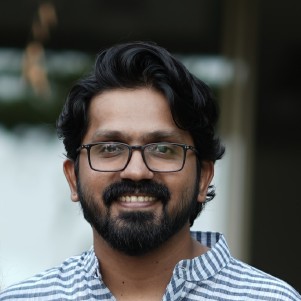
Initiated by Habitat Forum (INHAF) and Sustainable Initiatives (SI), the Open Ideas National Competition on Improving Livability of Small Houses and a 12 week “Housing Studio” on the same theme, are parallel and also complementary activities. Piloted at Bhanuben Nanavati College of Architecture (BNCA), Pune by INHAF, the 3rd season of the housing studio is being launched simultaneously in a number of architectural colleges in Pune, Mumbai and elsewhere in the country.
The purpose is to sensitise young professionals and senior design students by exposing them to the challenge and nuance of designing small spaces with limited budget which are livable, functionally appropriate, comfortable, accommodative, healthy and environmentally sustainable.
The idea is to academically equip them to critically analyse what is coming up in the streets in the form of affordable and low cost housing, and apply their skill, acumen and learning to produce innovatively better
solutions.
The aim is to make both students and faculty see the challenge, engage them to work on live situations under the guidance of a proper academic regimen and the mentorship of professional architectural firms, and motivate them to contribute to improve and change what our public agencies and private developers are making in our cities.
Studio Commences end of June as per Academic Calender 2024
The Studio is designed to be conducted over a period of 12 weeks as part of their academic work.
The Studio will sensitize Students through discussions towards improving the liveability of small houses through their design efforts.
Interested architecture colleges and other design institutes are requested to contact kirtee@inhaf.org and pkeskar@vke-environmental.com further exploration.
Four identified architectural practice firms will act as Mentor firms for four participating architecture colleges in Pune and Mumbai.
Stage 1: FAQ on the Housing Studio Program will be shared with interested colleges by 25th May 2024. Participating colleges (including Housing Faculty) and the mentoring architecture firms are introduced and briefed about the expectations and outcomes of the Housing Studio through Virtual. Kickoff Conference on 3rd July 2024 (details to be announced later).
Stage 2: With the beginning of the academic year, a week wise schedule is followed by the students & faculty to conduct case studies, generate ideas and develop their housing design, with focus on livebility for small homes.
Stage 3: Mentoring architecture firms engage with the students to see and give comments on their designs to make the designs buildable.
Stage 4: Faculty and Mentoring architecture firms identify potentially good designs for further participation in the Housing Studio Competition.
Stage 5: Finished entries are sent to external jury for assessment and winning design will be announced.
Stage 6: Suitable designs/innovations will be shared with interested project promoters, public and private, for use in their field projects.
The organizers welcome participation from architecture colleges across India. Colleges outside Pune/Mumbai can select their own Mentor Firm and participate similarly. Participating colleges may inform INHAF/SI of their intention to participate in the Housing Studio and share the credentials of the mentoring firms.
Jury Panel

More information about the competition components and the deliverables are available in the detailed brochure. Click here to Download.
Studio commences end of June as per Academic Calendar 2024
Your entries can be submitted in PDF format with a maximum size of 12MB. The deadline to submit is 30th September 2024. For more details, please refer the Competition Brochure.
Please use the following sheet templates for the submission. Click here to dowalod the Sheet Templates.
New Ideas and Innovations for Small yet Better Designed.
Better Designed. Better Functioning. Better Evolved. Sustainable and Green. Socially and Psychologically Better. Better Relating Neighbourhoods.

Check FAQs here. For further queries/clarifications/suggestions etc. Interested architecture colleges and other design institutes are requested to contact kirtee@inhaf.org and pkeskar@vke-environmental.com further exploration.










